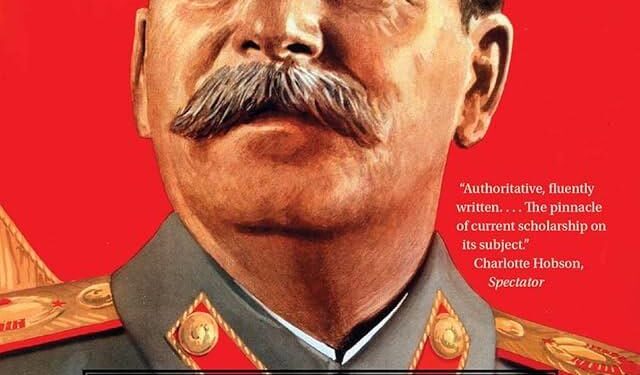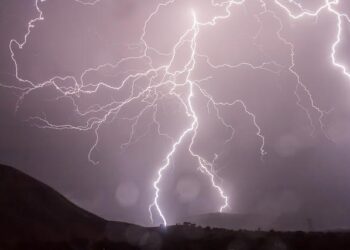As Russia observes the anniversary of Joseph Stalin’s notorious political repressions, concerns are mounting among historians, activists, and international observers that the country risks revisiting its dark past. Marking the brutal era known for mass arrests, executions, and widespread fear, this period of reflection comes amid growing reports of political crackdowns and tightening authoritarian controls under the current government. Sky News explores the lessons of history and voices warning that without vigilance, Russia’s legacy of repression could once again cast a long shadow over its future.
Russia Confronts Legacy of Stalin’s Political Repression Amid Rising Fears of Authoritarianism
As Russia reflects on the grim legacy left by Stalin’s political purges, unease grows within both domestic and international communities. The systematic repression that marked the Soviet era-characterized by mass arrests, forced labor camps, and widespread censorship-serves as a stark reminder of the dangers when unchecked government authority prevails. Contemporary critics warn that echoes of this dark period are manifesting in new forms, with increased crackdowns on dissent, tightening control over media, and the erosion of independent institutions raising alarm bells about the direction of the current regime.
Key indicators fueling concerns include:
- Expanded surveillance networks targeting political activists and journalists
- Legislative measures limiting freedom of assembly and expression
- State rhetoric justifying harsh penalties for perceived internal threats
- Disinformation campaigns undermining opposition voices
| Era | Political Repression Tactics | Modern Parallels |
|---|---|---|
| 1930s-1950s | Gulag labor camps, mass purges | Targeted imprisonments, tightened laws on protests |
| Today | Media censorship, restrictive legislation | Increased surveillance, crackdown on dissent |
Experts Analyze Contemporary Parallels to Historical State Control and Human Rights Abuses
Leading historians and human rights advocates have raised alarms over signs reflecting patterns of authoritarian consolidation reminiscent of the Stalin era. Analysts point to increased state surveillance, suppression of dissenting voices, and an erosion of judicial independence as modern echoes of historic political repression. The parallels, experts argue, are not merely coincidental but symptomatic of a broader strategy to stifle opposition while framing these actions as necessary for national security and stability.
The following factors are frequently cited as cause for concern among the international community:
- Media control: State influence over major news outlets limits public access to unbiased information.
- Legal manipulations: Courts increasingly serve political agendas rather than impartial justice.
- Targeting of activists: Harassment and imprisonment of human rights defenders have surged.
- Revisionist narratives: Official histories are often revised to whitewash or justify past abuses.
| Historical Repression Tactic | Contemporary Parallel | Impact |
|---|---|---|
| Forced confessions | Coerced televised admissions | Undermines legal fairness |
| Mass arrests of dissenters | Targeted detentions of activists | Suppresses political opposition |
| State propaganda campaigns | Controlled media messaging | Shapes public perception |
Calls for Transparency and Legal Safeguards Intensify to Prevent Repetition of Dark Soviet-Era Practices
Recent discussions among human rights advocates and historians in Russia have escalated demand for greater openness regarding the Stalinist purges and political repressions. Critics argue that official narratives still obscure the full extent of past atrocities, potentially paving the way for authoritarian practices to return under the guise of national security. Calls for the implementation of robust legal safeguards center around protecting citizens from arbitrary detention and ensuring fair trials, aiming to break the cycle of fear historically used to silence dissent.
Several key measures have been proposed to foster accountability and prevent abuses by those in power, including:
- Independent judicial oversight mechanisms to review cases of political imprisonment.
- Transparent public records of victims and official actions during the repressions.
- Educational programs highlighting the dangers of unchecked governmental authority.
- Support networks for families of current political prisoners and victims of repression.
| Proposed Safeguard | Purpose | Expected Outcome |
|---|---|---|
| Independent judicial oversight | Prevent arbitrary arrests | Fairer legal process |
| Transparent public records | Historical accountability | Informed citizenry |
| Educational programs | Public awareness | Reduced propaganda influence |
| Support networks | Victim assistance | Community resilience |
Future Outlook
As Russia reflects on the legacy of Stalin’s political repression, concerns linger that the shadows of its past may once again loom over the present. While official commemorations aim to acknowledge historical wrongs, critics warn that renewed authoritarian tendencies risk repeating patterns of silence and fear. As the nation grapples with its complex history, both domestic and international observers remain vigilant, watching to see whether lessons from a dark chapter will truly guide Russia’s future.
















